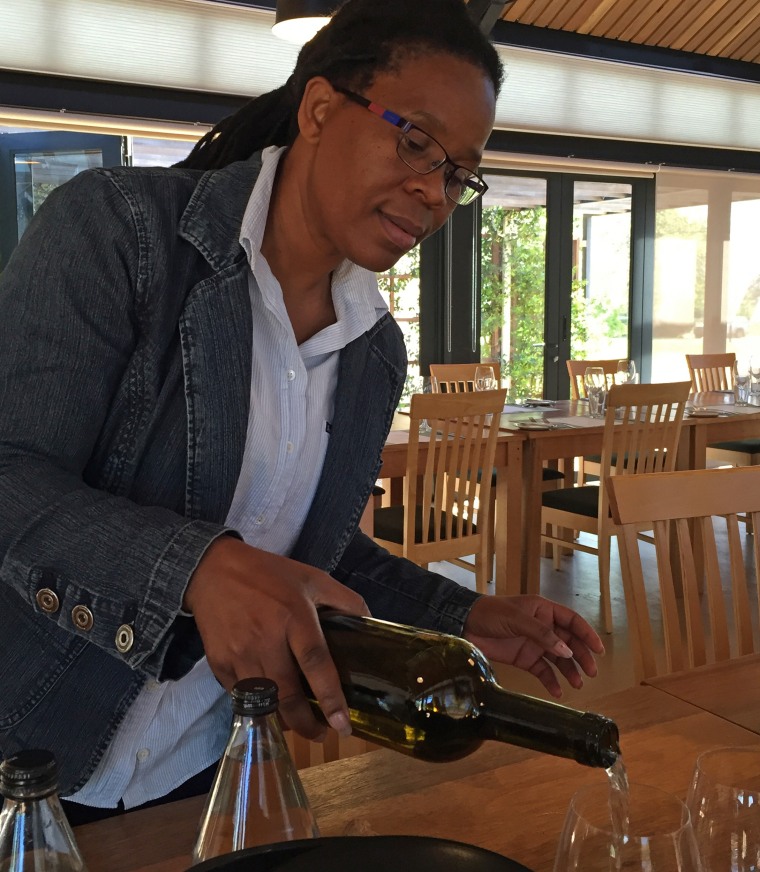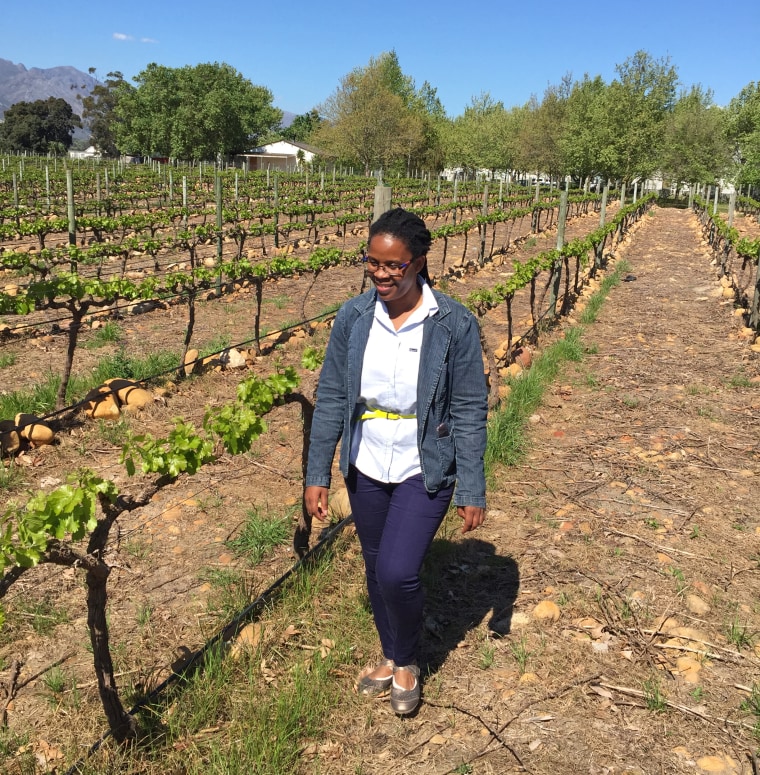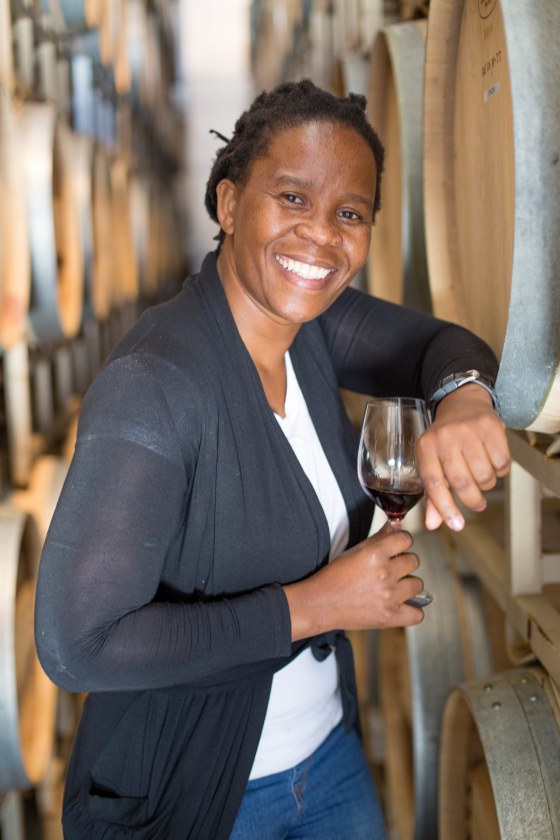On a warm and sunny afternoon in South Africa’s wine country, Ntsiki Biyela smiled as she remembered arriving here in the famed Stellenbosch region just east of Cape Town and seeing the strange “small trees” that lined the landscape.
“I never saw such short trees,” she told NBC News. “I asked what they were and they said, ‘grapes.’”
That was the first time Biyela had ever seen a vineyard — and her first step toward becoming a winemaker, the first black woman in South Africa ever to do so.

It was 1999. Apartheid, the oppressive system of racial segregation that had governed life in South Africa for more than half a century, had ended only five years before. Nelson Mandela was the first post-apartheid president. And Ntsiki Biyela had recently finished high school in her rural village in the eastern province of KwaZulu-Natal. She was earning money as a domestic worker when an opportunity came her way. She was told about an effort to bring more people of color into the wine industry through an initiative with Stellenbosch University, known throughout the world for its winemaking program.
Biyela applied. Not only was she accepted, she won a four-year scholarship. “Luckily,” she says, “the scholarship paid for everything because I grew up with my grandmother and she couldn’t afford all these things.” Biyela was one of four or five black students — in a class of 60.
Learning to Love Wine
Like most blacks at the time, she had no familiarity with wine. In her village they drank home-brewed beer and liquor. And if blacks and so-called “coloreds” — people of mixed race — had any involvement with the wine industry, it was as unskilled laborers (as it largely still is today).
As Biyela was about to take her first taste of wine, she recalled being told about “the fruits, the flavors, and the beautiful character of it.” She thought, “This is going to be nice.” It wasn’t. “It was the most horrible thing I had ever tasted,” she says, wincing.
But that would change.
After finishing her studies and earning a degree in viticulture and oenology (and working while in school at Delheim, a large wine estate), Biyela was hired in 2003 as a junior winemaker by Stellekaya, a small, family-owned winery in Stellenbosch. Within a couple of years, she was put in charge of winemaking. "I was terrified,” she recalled with a nervous laugh.
She drew on some advice she had received. “When I left home, one of my aunts said, ‘When you get to that place where you can manage to be everything you want to be, know that the person cleaning the floor knows better than you.’” For Biyela, that person turned out to be her cellar supervisor, a mixed-race man named Nicholas. “He had to report to me but he helped me navigate,” she says.“We called him ‘Pa.’”
In her dozen years at Stellekaya, the wines, mainly Bordeaux and Mediterranean red varietals and blends, won prestigious awards and gained a following in South Africa and beyond. Biyela was named South Africa’s Woman Winemaker of the Year in 2009.
Branching Out
She recently left Stellekaya to develop her own label, Aslina, named after her grandmother. The wines, including a Sauvignon Blanc and a Cabernet Sauvignon, will be exported to the U.S. later this spring.

For Biyela, having her own brand is not just about the wine and building a business, but giving back. “What drives me more is my background,” she said. She is talking about her village of under 1,000 people back in Zululand, where she wants to start an “information center.”
She explained, “We’ve got no access to information. In general, the internet is a normal thing, but not there. I need to start that and I must have my own business to drive that.” The idea, she says, is to help people look for opportunities beyond the village.
Today, Biyela is one of probably a couple of dozen black winemakers in a national industry — currently the world’s seventh-largest in production — that employs 290,000 people and has more than 550 wineries. Wines of South Africa, a trade group, says there are 37 black-owned wine brands.
Various “empowerment” and “transformation” initiatives in wine aim to increase ownership and employment in leadership roles among people of color. But many in the industry — black and white — admit the process has been slow. While winemaking in South Africa goes back to the late 17th century, the modern industry, now freed (officially, at least) of the burdens of the past, is still just over two decades old, having begun with the end of apartheid.
Fermenting Change
“It’s not going as fast as it should,” said Biyela of progress in an industry where ownership and leadership are still overwhelmingly white. “That’s my perception.” As she elaborated, she remained diplomatic, telling NBC News, “The wine industry is family owned, businesses are family owned. So when you talk about transformation and want to bring somebody in, it’s like, ‘I’m trying to protect my space.’ Hence, the transformation is going very slowly.”
“Step by step it is working, but it’s going to take a while,” she added.
For Biyela, at least, skill, drive, and luck have brought her national and international recognition. They have made her a role model and a leading symbol of change in her country’s evolving wine industry and beyond. And now, with her own label, Ntsiki Biyela begins the next chapter in her South African dream.

